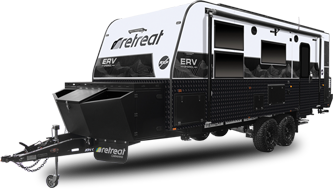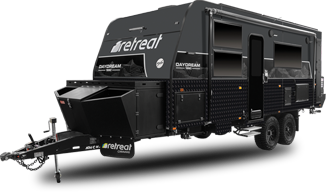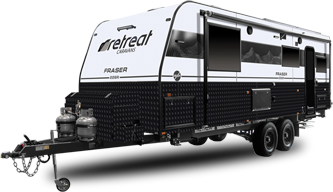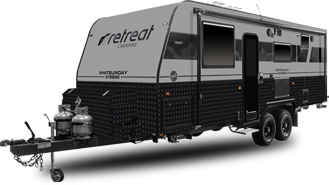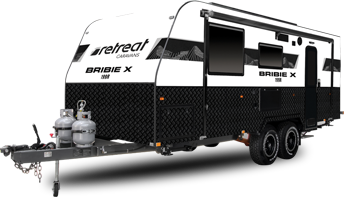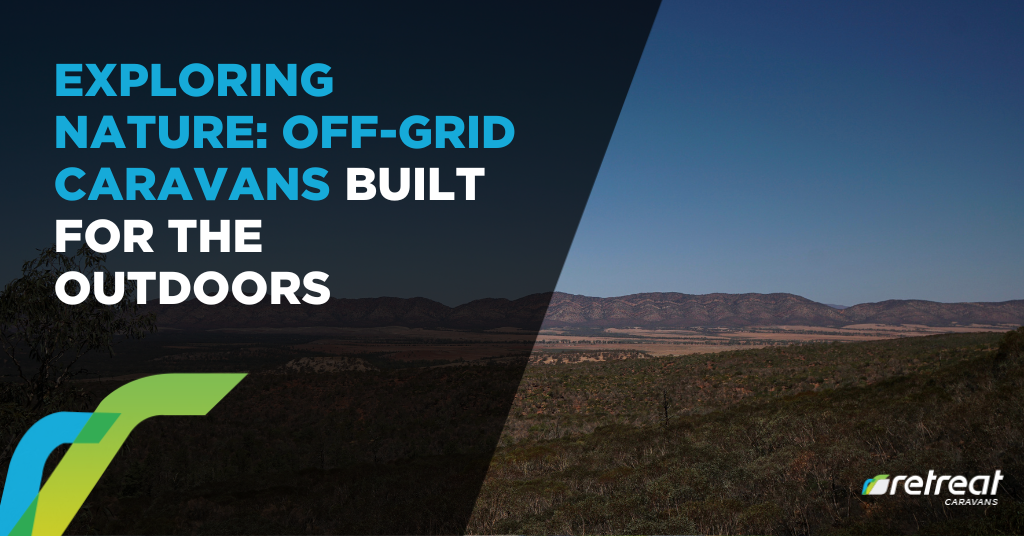
Exploring Nature: Off-Grid Caravans Built for the Outdoors
Australia’s rugged landscapes and remote beauty call for a travel setup that can keep up. That’s where luxury caravans built for off-grid adventures come in. These self-sufficient rigs let you explore the wild without giving up comfort. Whether it’s a weekend escape or a months-long journey, off-grid caravans are changing the way people experience the outdoors.
Why Off-Grid Caravans Are a Game Changer
Traditional caravans rely on powered sites and well-equipped campgrounds. Off-grid caravans break that limit. With solar panels, water storage, and advanced battery systems, these setups let travellers roam freely.
The demand for off-grid travel has surged. People want to disconnect from busy city life and reconnect with nature. Caravans now come with smart energy management, durable construction, and water-saving systems. This means longer stays in the wild without sacrificing daily essentials.
These caravans aren’t just for hardcore adventurers. Families, retirees, and digital nomads are embracing off-grid living. With the right setup, you can park by a secluded beach, deep in the bush, or near a remote outback waterhole and stay there for days.
Essential Features of a True Off-Grid Caravan
A true off-grid caravan isn’t just a regular van with solar panels. It needs a combination of durability, self-sufficiency, and smart technology. Here’s what sets them apart:
- Solar Power & Battery Systems – High-capacity lithium batteries and efficient solar panels keep appliances running.
- Water Storage & Filtration – Large water tanks, greywater recycling, and purification systems ensure a steady supply.
- Heavy-Duty Suspension – Tough terrain requires reinforced chassis, shock absorbers, and all-terrain tyres.
- Smart Energy Management – Systems that track power usage help maximise battery life.
- Insulation & Ventilation – Keeps the caravan comfortable in extreme weather.
- Durable Construction – Strong frames, composite walls, and dustproof seals handle rough conditions.
These features allow off-grid caravans to thrive in remote areas where traditional caravans would struggle.
Current Trends in Off-Grid Caravanning
Off-grid travel is evolving fast. Innovations in technology, sustainability, and comfort are shaping the industry. Some of the biggest trends include:
- Lithium Battery Advancements – Newer lithium batteries store more energy and charge faster.
- Smart Connectivity – Remote monitoring apps let travellers check power, water, and weather conditions.
- Sustainable Materials – More manufacturers are using eco-friendly materials to reduce their environmental impact.
- Expanding Work-from-Road Setups – With high-speed satellite internet, digital nomads are embracing off-grid life.
These trends make off-grid caravanning more accessible to a wider range of travellers. Whether you’re a weekend camper or planning a lap around Australia, new tech is making life on the road easier.
Real-World Example: A Family’s Journey into the Outback
The Bennett family from Victoria spent six months exploring Australia’s remote areas in their off-grid caravan. They wanted to escape city life and experience nature up close. Their setup included:
- A hybrid solar and lithium battery system for unlimited off-grid power.
- A large water filtration system to collect and purify rainwater.
- Satellite internet for staying connected while homeschooling their kids.
- Off-road suspension and reinforced chassis for tackling rough tracks.
Their journey took them from the Daintree Rainforest to the red sands of the Simpson Desert. They camped in places far from caravan parks, relying on their setup to stay comfortable. Their biggest takeaway? Off-grid caravanning gave them freedom. They explored secluded beaches, hidden waterfalls, and outback gorges without worrying about powered sites.
Their experience highlights how self-sufficient travel unlocks a deeper connection with nature. It’s not just about getting away—it’s about exploring places most travellers never reach.
Best Locations for Off-Grid Caravan Adventures
Australia is full of stunning destinations perfect for off-grid travel. Some top spots include:
- Cape York, QLD – Remote, rugged, and packed with adventure.
- Gibb River Road, WA – Outback landscapes, waterfalls, and gorges.
- Flinders Ranges, SA – Mountain scenery and rich Aboriginal history.
- High Country, VIC – Alpine trails and secluded camping spots.
- Tasmanian Wilderness, TAS – Untouched landscapes and coastal beauty.
For those looking to discover the magic of camping in Victoria’s wilderness, Victoria’s High Country offers breathtaking scenery and remote tracks perfect for an off-grid setup.
The Future of Off-Grid Caravanning
As technology advances, off-grid caravans are becoming more self-sufficient and comfortable. Future innovations include:
- More Efficient Solar Panels – New designs will generate more power in less space.
- AI-Powered Energy Management – Smart systems will optimise power usage based on habits.
- Water Harvesting Innovations – Advanced systems will collect moisture from the air.
- Lighter, Stronger Materials – New composites will improve durability without adding weight.
These improvements will make unleashing the freedom of off-grid caravans even easier. Travellers will be able to stay off-grid for longer while enjoying modern comforts.
FAQs About Off-Grid Caravans
1) How long can you stay off-grid in a caravan?
With the right setup, travellers can stay off-grid for weeks, sometimes even months. The biggest limitations are water supply, power storage, and waste management. A well-equipped off-grid caravan will have large water tanks, energy-efficient appliances, and a reliable power system, allowing for extended stays in remote areas. Many modern off-grid caravans come with solar panels and lithium batteries, ensuring a steady supply of electricity for lights, refrigeration, and cooking. A caravan with a 300Ah lithium battery and 600W of solar panels can comfortably power essential devices for a long stay. Managing water wisely is also key. Water filtration and greywater recycling systems help conserve and reuse water, extending the time between refills. For those wanting to go completely off-grid for months, external water storage solutions and backup generators can be added. With smart planning, off-grid travel can last as long as the supplies do.
2) Are off-grid caravans expensive?
Off-grid caravans cost more than standard models, mainly due to their advanced technology and rugged construction. The higher price comes from features like reinforced chassis, heavy-duty suspension, solar power systems, lithium batteries, and water storage solutions. While the upfront cost is higher, these caravans save money over time by reducing reliance on caravan parks and powered sites. Many travellers find that the freedom to explore without paying nightly fees offsets the initial investment. Additionally, off-grid caravans hold their resale value well due to growing demand. For those serious about long-term adventures in remote locations, the cost of an off-grid caravan is an investment in travel freedom. Some manufacturers also offer finance options, making it easier for travellers to afford a high-quality setup. Over time, the ability to travel without paying for campsites makes off-grid caravanning a cost-effective lifestyle choice.
3) Do you need a special licence to tow an off-grid caravan?
In Australia, most people can tow an off-grid caravan with a standard driver’s licence, but experience matters. Caravan towing requires different skills than regular driving, especially when navigating rough terrain or tight camping spots. While there’s no legal requirement for a special licence for caravans under a certain weight, it’s strongly recommended that drivers take a towing course. These courses teach how to handle weight distribution, reversing, braking distances, and off-road manoeuvres, all of which are critical for safe towing. If the caravan’s gross vehicle mass (GVM) exceeds 4,500kg, a light rigid (LR) or higher-class licence may be required. Additionally, drivers must ensure their tow vehicle is legally allowed to tow their caravan’s weight, as exceeding the manufacturer’s towing capacity is both dangerous and illegal. Before hitting the road, checking local towing regulations and taking a practical training course will ensure a safer, stress-free experience.
4) What size vehicle do you need for an off-grid caravan?
The size of the vehicle needed for an off-grid caravan depends on the caravan’s weight, length, and terrain it will be travelling on. Most off-grid caravans are designed for rough conditions and often weigh between 2,500kg to 3,500kg. A vehicle with a tow capacity of at least 3,500kg, such as a Toyota LandCruiser, Ford Ranger, or Nissan Patrol, is commonly recommended. Towing capacity isn’t the only factor to consider. The vehicle must also have a strong braking system, adequate torque, and the right suspension to handle uneven ground. For extreme off-road conditions, a 4WD with low-range gearing and a reinforced chassis is ideal. Additionally, a weight distribution hitch and electric brake controller help improve towing safety. Before purchasing an off-grid caravan, it’s essential to check the tow vehicle’s Gross Combination Mass (GCM) and ensure it can legally and safely tow the caravan, passengers, and gear.
5) Can you live in an off-grid caravan full-time?
Yes, many people in Australia have embraced full-time off-grid caravan living. With modern technology, off-grid caravans now provide everything needed for comfortable, long-term travel, including solar power, water filtration, satellite internet, and efficient storage solutions. Families, retirees, and remote workers are making the switch to a mobile lifestyle, enjoying the freedom to explore while maintaining daily routines. The key to full-time off-grid living is self-sufficiency. Large water tanks, lithium batteries, composting toilets, and off-road capabilities ensure extended stays in remote areas without needing to visit towns frequently. Many full-time caravan travellers also install Starlink internet for high-speed connectivity, allowing them to work from anywhere. Downsizing to a caravan lifestyle requires planning and adaptation, but with the right setup, it’s possible to live comfortably, affordably, and sustainably on the road for years.
Experience the Freedom of Off-Grid Travel
Off-grid caravans are reshaping outdoor travel in Australia. They let adventurers explore remote locations without giving up comfort. With advances in technology and sustainability, the future of off-grid travel looks even more exciting.
Whether you want weekend getaways or full-time adventure, a quality off-grid caravan is the key. If you’re ready to experience true freedom, check out Retreat Caravans and start planning your next great escape. See below for our full range of caravans, all carefully designed with you in mind:



